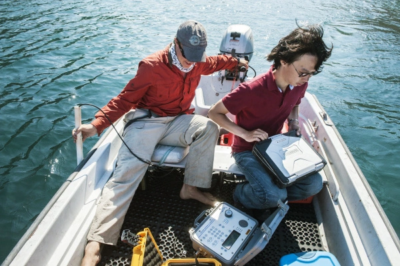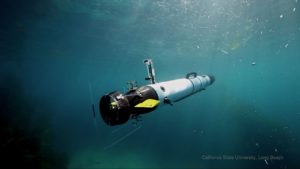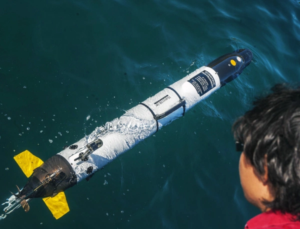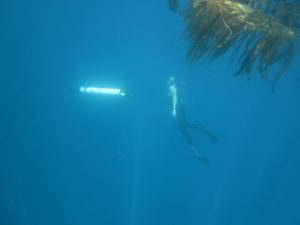NSF Funds Interdisciplinary Engineering, CS and Biology Research
July 24, 2020
The National Science Foundation (NSF) has funded Harvey Mudd College engineering professor Chris Clark’s project “Monitoring of Marine Life Coastal Habitats via Autonomous Robot Systems.”
“The project builds from our previous shark-tracking projects as well as our cross-cultural International Computer Engineering eXperience (ICEX) program,” says Clark.
Researchers are seeking to extend the development of AUV technology and apply it to a marine life monitoring study, which tracks nurse sharks and sea turtles within their habitat in Bahia Santa Elena, Costa Rica.

In collaboration with biology students from Cal State University Long Beach and the University of Costa Rica, a team of Harvey Mudd College engineering/computer science students will develop new robot tracking technology that can be applied to other applications (coast guard surveillance, for example) and develop new data that will increase the understanding of how sharks and sea turtles migrate along the coast.
Each summer for three years, a new cohort of HMC and CSU Long Beach students will travel to Costa Rica for up to six weeks to work with hosts/professors Mario Espinoza and Maike Heidemeyer and their students.
“Costa Rica is ideal to not only test and develop robotics technology that is required for such sampling, but also to produce new data regarding the motion behaviors of these relevant species,” says Clark, who has led teams in similar research off the coast of Malta in the Mediterranean Sea and in the Pacific Ocean off the coast of Catalina Island.

“A benefit of this work is that the students will gain extensive professional training in topics outside their field of study but still highly relevant for research progress. The cross-cultural learning activities associated with the program have potential to provide once-in-a-lifetime opportunities for the students involved, including potential for engagement with local NGO leaders, school children, fishers and researchers from Costa Rica,” he says.
The project involves underwater robotics and marine biology, and Clark believes there’s potential for great contributions to both fields. “The development of a multi-AUV system that uses single hydrophone receivers for active tracking of marine life will itself generate new objective function formulations, new algorithms to optimize such objective functions, new approaches to decentralize the algorithms across multiple AUVs and new methods of systems integration,” he says. “With respect to contributions this work will make to marine biology, the fine-scale movement patterns of both the nurse sharks and sea turtles in Costa Rica are largely unknown. Also, their habitats have never been mapped. Combining these two new data sets, motion patterns and habitat maps, will answer some of the most basic but unanswered questions regarding how these species use their habitats.”
Though international travel is still restricted due to the pandemic, Clark says the project will carry on. “Despite our inability to travel, we are having our colleagues setup equipment and track sea turtles and sharks within the next few months. This will allow us to start getting static receiver data, providing us with a baseline understanding of animal movements.”
NSF grants are the largest share of external support for faculty research at Harvey Mudd.
